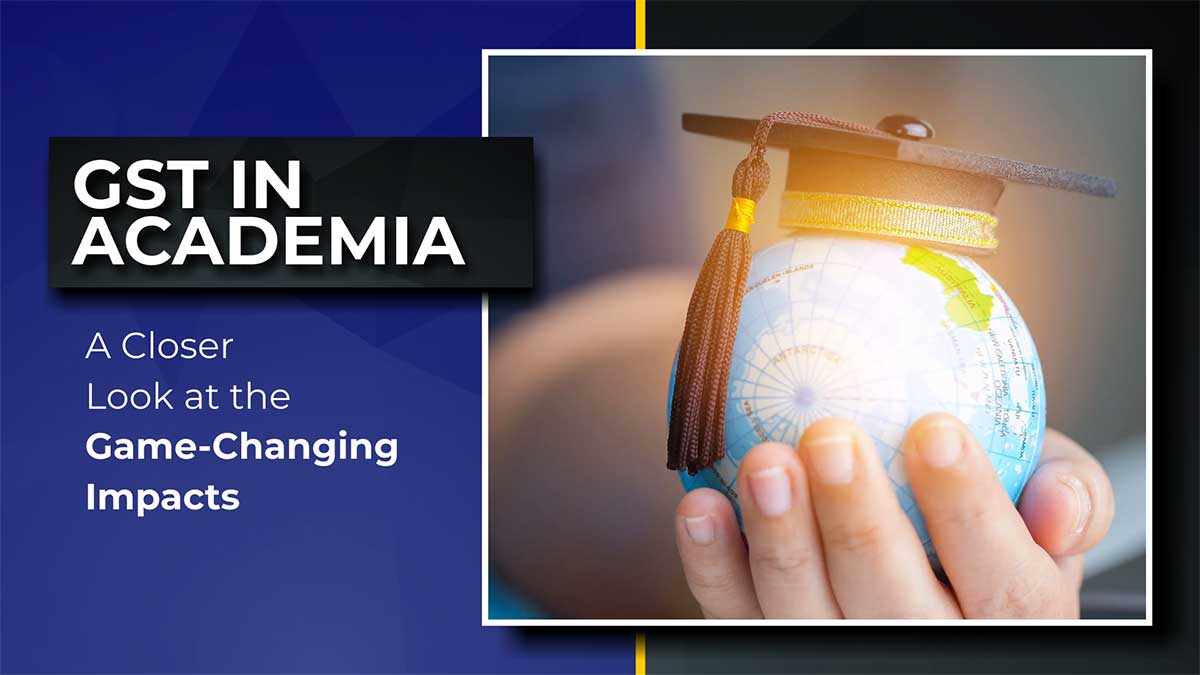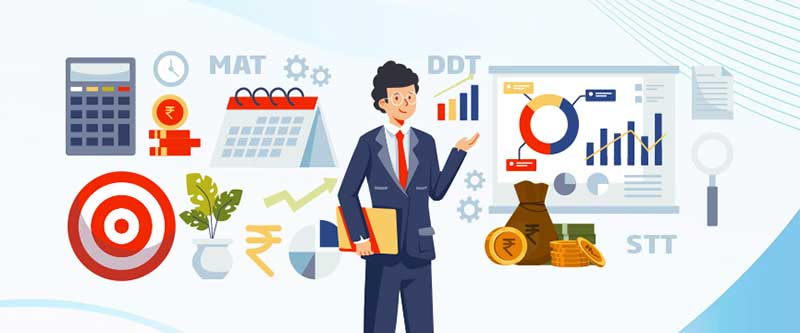
India’s education sector has undergone dynamic changes with a surge in private investments, global partnerships, and a focus on specialized, industry-centric degrees. The implementation of cutting-edge technologies signals a shift towards Education 4.0. Despite GST compliance exemptions benefiting fundamental education services, challenges persist in taxing foreign consultancy and secondary services, requiring prompt attention for clarity. As the education landscape evolves, collaboration between educational institutions and policymakers is crucial to align the GST and Indirect Taxes framework with sector advancements, ensuring continued growth and accessibility.
India’s Shift Towards Industry-Focused Qualifications
India stands as a key player in the global education industry, boasting one of the world’s most extensive networks of higher education institutions. However, the education sector is continuously evolving, with ample room for further development and enhancement. Private investments in the Indian education sector have surged dramatically in the recent past, which has fostered partnerships with international brands to deliver education of a global standard. The demand for specialized degrees is rising, which is indicative of a trend towards qualifications that are industry-focused.
The implementation of state-of-the-art technologies like blockchain, AI, ML, IoT, and IoT marks a paradigm shift in India’s educational landscape. The industry is heading towards more employable and inclusive learning as it embraces the Education 4.0 revolution. A dedication to quality vocational education is demonstrated by initiatives such as the National Education Policy (NEP). With anticipated growth of US$ 2.28 billion1 during 2021 and 2025, the Indian education market is projected to grow significantly—a remarkable Compound Annual Growth Rate (CAGR) of nearly 20%2. India has an ever-growing young population, which increases the need for increasing educational infrastructure; COVID has given a fillip to the online education industry like never before.
Explore the dynamic impact of indirect taxes on the education sector. Uncover challenges, exemptions, and insights, shaping the evolving landscape.
Understanding GST Exemptions and Challenges in the Education Sector
In the realm of GST, education holds a unique position, recognized as a process that nurtures knowledge, skill, and character. The government’s emphasis on providing affordable education has resulted in significant tax exemptions for the education sector. Post GST implementation, these exemptions have been retained, with educational services and services related to education covered under the GST exemption list.
By exempting fundamental educational services, the GST Act creates a balance. Few ancillary educational services are subject to a regular rate of 18%, while the exemption for essential services is not applicable. Importantly, auxiliary services obtained by educational institutions up to the Higher Secondary level are also exempt from GST. However, just like other taxpayers, private tutors and coaching centers must comply with GST law just like any other sector. This approach aligns with the fundamental right of all children in India to access education. Even various services related to education, like books, OMR sheets, and more, are exempted from GST.
A significant concern is the taxation of foreign education consultancy, a swiftly expanding sector. The government must address the tax ambiguity surrounding this area to ensure smooth operations. Additionally, challenges persist in the taxation of secondary services, such as Hostel and Mess Services, technological aids, non-recognized educational units, and coaching centers. These challenges contribute to an environment of uncertainty and necessitate clear guidelines for proper compliance within the education sector.
In conclusion, while the education sector has not been severely affected by GST, there are certain areas of ambiguity that require prompt attention. The challenges related to the taxation of specific services need to be addressed to provide clarity and facilitate seamless compliance. A positive outlook involves collaborative efforts between educational institutions and policymakers to streamline GST processes and create a transparent tax environment for the education sector.

Insider Perspectives by Sanjay Patni, CFO – Ahmedabad Education Society – AES – Assessing GST Impact on Education and the Need for Clarity
The impact of GST on the education sector has been both nuanced and significant. Retained tax exemptions have made sure that fundamental education services remain accessible to students and institutions without putting additional financial burdens on them. This has allowed educational institutions to focus on delivering quality education without the complexities of GST compliance impacting their core mission. However, challenges persist for outstation students wanting to avail of hostel services as well as private tutors and coaching centers, who must navigate GST laws and their compliance. Confusion on the taxability of hostels needs to be addressed sooner; it is too important a question to be left for the courts. Judicial verdicts take time to come, and till then, the sector is forced to carry the risk.
The landscape of education is rapidly evolving with the integration of technology. The GST framework needs to adapt accordingly to accommodate these changes. While the government has launched the National Education Policy (NEP), signaling a forward-looking approach, a parallel commitment to aligning the GST framework with the evolving needs of the education sector is essential. This would not only complement the NEP’s objectives but also demonstrate a holistic commitment to the advancement of education in the country.
There is a need for ongoing dialogue between the government and the education sector to address any emerging challenges, ensuring the continued growth and accessibility of education for all in India. I believe that such an open and conducive environment is best suited not just for education but for all sectors.
